
A summit of master improvisers as tenor saxophonist Ivo Perelman joins the Matthew Shipp String Trio — Shipp on piano, Mat Maneri on viola, and William Parker on bass — for a profound studio session of dynamic, four-way conversation that balances drama with hope, forging a richly textured and deeply expressive work of improvised chamber jazz.
In Stock
Quantity in Basket: None
Log In to use our Wish List
Shipping Weight: 3.00 units
EU & UK Customers:
Discogs.com can handle your VAT payments
So please order through Discogs
Sample The Album:
Ivo Perelman-tenor saxophone
Matthew Shipp-piano
Mat Maneri-viola
William Parker-bass
Click an artist name above to see in-stock items for that artist.
UPC: 642623801826
Label: Tao Forms
Catalog ID: TAO 018CD
Squidco Product Code: 36189
Format: CD
Condition: New
Released: 2025
Country: USA
Packaging: Digipack
Recorded at Park West Studios, in Brooklyn, New York, on September 10th, 2024, by Jim Clouse.
"The seminal Matthew Shipp String Trio reconvened in late 2024 in order to commune with tenor saxophonist Ivo Perelman in studio. Armageddon Flower is the epic result. This album is a peak gem of improvised communication in each of their extensive and astonishing bodies of work, revealing new ways of exemplifying tradition, language, physics, material, and energy. A profound work presenting such communication at a very high level indeed.
Since 1996 Perelman & Shipp have recorded numerous albums together in duo and small group settings. But as Shipp is careful to point out, "there's only one Matthew Shipp String Trio." At the turn of the century, this Trio struck out on a path to redefine "Third Stream" chamber jazz via two very well-received Hat Hut CDs. A quarter century later, this new work clearly builds on extensive, musically interwoven personal history. For Shipp, "William and Mat are as close to my natural soul brothers as you can get--and by soul I mean -the- soul. Ivo is another layer of that same soul."
Perelman's copious studio dates - beginning with his self-titled Ivo (1989) - are a continual refinement and study in process whether or not they share personnel, and countless gems reside in his vast body of work. Armageddon Flower is a singular gem in the entire body of improvised music.
While there are sections of duo and trio interaction, the focus here is on four-way conversation in which parallel streams become oceans of sound, only to be distilled into isolated rivulets once again. Without a drummer but with forward motion and bounce, the music operates in a continuous flow of both impulsion and idea.
It's unquestionable that this is music of necessity, of striving, and of possibility. Perelman had this to say about the album's title and what these four musicians share:
"Listening to this music is akin to reading the Book of Revelations in the Bible. I called it Armageddon Flower as an attempt to instill some hope amidst the hysteria of the times and contemplating our own extinction as a human species. This music has drama but also has the light of being saved, of the savior, whoever or whatever that is."
"-Tao Forms
"Despite its quasi-apocalyptic album title the group improvisation here doesn't reference world destruction following a good vs evil battle, but instead posits the flowering of hope in these agitated times. While dramatic and discordant the program also contain instances of cooperation, since the group combines two ensembles that have each flourished for nearly three decades. One is the duo of tenor saxophonist Ivo Perelman and pianist Matthew Shipp, the other the Shipp String Trio with bassist William Parker and violist Mat Maneri. Because of the cross fertilization of creative music, none are strangers to one another. Besides the saxophonist's 46 album partnership with the pianist, Perelman has often worked with the bassist and violist.
Just as Perelman is no traditional saxophonist, the trio is anything but a conventional string group. Besides the atypical configuration, the piano and strings aren't there to sweeten or accompany the saxophone's lead. All players function as full partners, with group improvising the aim. Both antiphonic and aleatoric, the sounds depend on distinctive statements from each - though the saxophonist has the edge - with prompt presentations, responses or elaboration from the others, most prominently the violist and pianist. Besides frequently decisive introductions and sequence amplifications with arco buzzes and pizzicato strums, the bassist is more a prompter than a principal.
The disc encompass a variant of tension-release with the saxophonist's whiny split tones, inflating honks, terse bites and droning scoops frequently operating in tandem with processional piano resolves and concentrated string pressure, although players often exchanges roles as the four expositions evolve. Skilled in communicating emotion and invention through multiphonics and note squalling, interludes of Perelman's lyricism are also present, with the reed calming reflecting balladic piano sequences or regularized string glissandi. Feral stress isn't limited to the saxophonist though, as keyboard chiming, terse viola grinds and crushing double bass pumps are occasionally expressed, usually, as on "Tree of Life", as an aural circle dance where all the musicians participate.
A singular but striking blend Armageddon Flower shows that controlled dissidence can be as balanced, if not as harmonious, as expected timbres when expressed by practiced improvisers."-Ken Waxman, JazzWord
Get additional information at Jazzword
Artist Biographies
• Show Bio for Ivo Perelman "Born in 1961 in São Paulo, Brazil, Perelman was a classical guitar prodigy who tried his hand at many other instruments - including cello, clarinet, and trombone - before gravitating to the tenor saxophone. His initial heroes were the cool jazz saxophonists Stan Getz and Paul Desmond. But although these artists' romantic bent still shapes Perelman's voluptuous improvisations, it would be hard to find their direct influence in the fiery, galvanic, iconoclastic solos that have become his trademark. Moving to Boston in 1981, to attend Berklee College of Music, Perelman continued to focus on mainstream masters of the tenor sax, to the exclusion of such pioneering avant-gardists as Albert Ayler, Peter Brötzmann, and John Coltrane (all of whom would later be cited as precedents for Perelman's own work). He left Berklee after a year or so and moved to Los Angeles, where he studied with vibraphonist Charlie Shoemake, at whose monthly jam sessions Perelman discovered his penchant for post-structure improvisation: "I would go berserk, just playing my own thing," he has stated. Emboldened by this approach, Perelman began to research the free-jazz saxists who had come before him. In the early 90s he moved to New York, a far more inviting environment for free-jazz experimentation, where he lives to this day. His discography comprises more than 50 recordings, with a dozen of them appearing since 2010, when he entered a remarkable period of artistic growth - and "intense creative frenzy," in his words. Many of these trace his rewarding long-term relationships with such other new-jazz visionaries as pianist Matthew Shipp, bassists William Parker, guitarist Joe Morris, and drummer Gerald Cleaver. Critics have lauded Perelman's no-holds-barred saxophone style, calling him "one of the great colorists of the tenor sax" (Ed Hazell in the Boston Globe); "tremendously lyrical" (Gary Giddins); and "a leather-lunged monster with an expressive rasp, who can rage and spit in violence, yet still leave you feeling heartbroken" (The Wire). Since 2011, he has undertaken an immersive study in the natural trumpet, an instrument popular in the 17th century, before the invention of the valve system used in modern brass instruments; his goal is to achieve even greater control of the tenor saxophone's altissimo range (of which he is already the world's most accomplished practitioner). Perelman is also a prolific and noted visual artist, whose paintings and sketches have been displayed in numerous exhibitions while earning a place in collections around the world." ^ Hide Bio for Ivo Perelman • Show Bio for Matthew Shipp "Matthew Shipp was born December 7, 1960 in Wilmington, Delaware. He started piano at 5 years old with the regular piano lessons most kids have experienced. He fell in love with jazz at 12 years old. After moving to New York in 1984 he quickly became one of the leading lights in the New York jazz scene. He was a sideman in the David S. Ware quartet and also for Roscoe Mitchell's Note Factory before making the decision to concentrate on his own music. Mr Shipp has reached the holy grail of jazz in that he possesses a unique style on his instrument that is all of his own- and he's one of the few in jazz that can say so. Mr. Shipp has recorded a lot of albums with many labels but his 2 most enduring relationships have been with two labels. In the 1990s he recorded a number of chamber jazz cds with Hatology, a group of cds that charted a new course for jazz that, to this day, the jazz world has not realized. In the 2000s Mr Shipp has been curator and director of the label Thirsty Ear's "Blue Series" and has also recorded for them. In this collection of recordings he has generated a whole body of work that is visionary, far reaching and many faceted." ^ Hide Bio for Matthew Shipp • Show Bio for Mat Maneri "Mat Maneri was born in 1969, and started studying violin at age five. He studied privately with Julliard String Quartet founder Robert Koff, and with bass virutuoso Miroslav Vitous. Mat received a full scholarship as the principal violinist at Walnut Hill High School, but left school to pursue a professional career in music. By 1990, Mat founded the critically acclaimed Joe Maneri Quartet with Randy Peterson. Mat started releasing records as a leader in 1996, and has developed four working ensembles. Pianists Paul Bley, Cecil Taylor, Matthew Shipp, and Borah Bergman have called upon Matt to perform with them in such venues as the Montreal Jazz Festival, the Library of Congress, and concert stages across Europe. Mat also enjoys a strong relationship with bassists Ed Schuller, Mark Dresser, William Parker, Michael Formanek, Barre Phillips, and John Lockwood. Never to be boxed in, Mat has also worked with Joe Morris, John Medeski, Tim Berne, Cecil McBee, T.K. Ramakrishnan, Franz Kogelman, Roy Campbell, Spring Heel Jack, Draze Hoops, and appears on an Illy B Eats remix CD. Mat presently teaches privately and through the New School / NYC, and performs and records worldwide." ^ Hide Bio for Mat Maneri • Show Bio for William Parker "William Parker is a bassist, improviser, composer, writer, and educator from New York City, heralded by The Village Voice as, "the most consistently brilliant free jazz bassist of all time." In addition to recording over 150 albums, he has published six books and taught and mentored hundreds of young musicians and artists. Parker's current bands include the Little Huey Creative Music Orchestra, In Order to Survive, Raining on the Moon, Stan's Hat Flapping in the Wind, and the Cosmic Mountain Quartet with Hamid Drake, Kidd Jordan, and Cooper-Moore. Throughout his career he has performed with Cecil Taylor, Don Cherry, Milford Graves, and David S. Ware, among others." ^ Hide Bio for William Parker
7/15/2025
Have a better biography or biography source? Please Contact Us so that we can update this biography.
7/15/2025
Have a better biography or biography source? Please Contact Us so that we can update this biography.
7/15/2025
Have a better biography or biography source? Please Contact Us so that we can update this biography.
7/15/2025
Have a better biography or biography source? Please Contact Us so that we can update this biography.
Track Listing:
1. Pillar of Light 16:06
2. Tree of Life 21:00
3. Armageddon Flower 11:26
4. Restoration 16:11
Improvised Music
Jazz
Free Improvisation
Collective & Free Improvsation
Chamber Jazz
NY Downtown & Metropolitan Jazz/Improv
Quartet Recordings
Parker, William
Staff Picks & Recommended Items
New in Improvised Music
Recent Releases and Best Sellers
Search for other titles on the label:
Tao Forms.


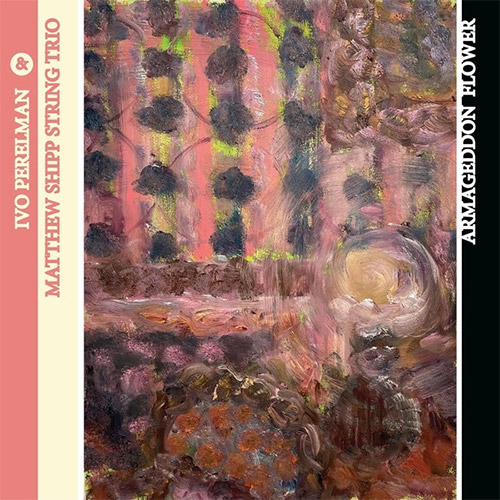
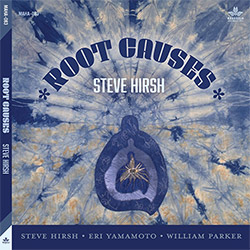
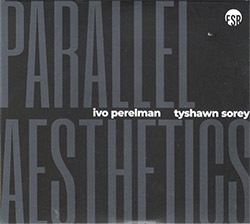

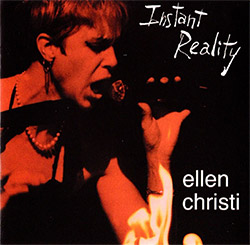
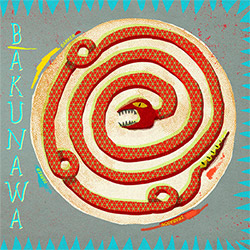

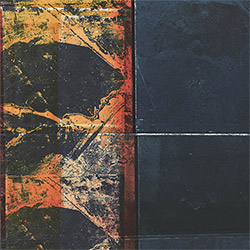
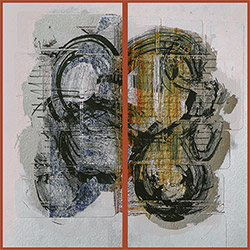
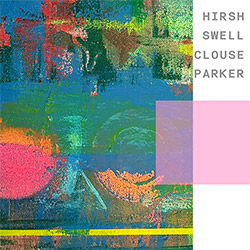
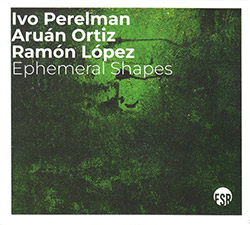



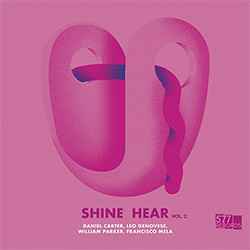
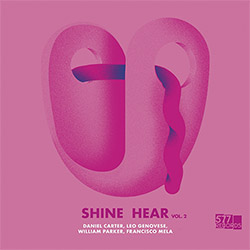
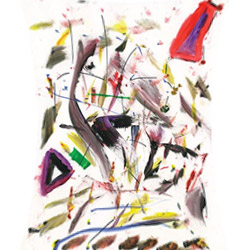
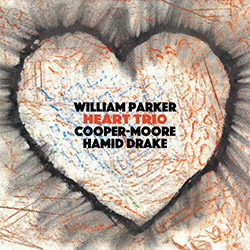



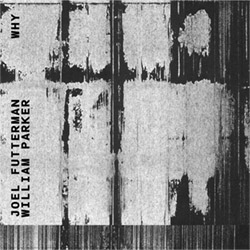


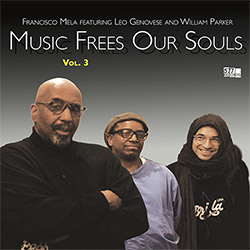

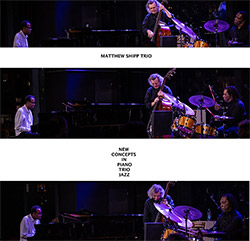




![BlueRing Improvisers: Materia [2 CDs]](https://www.teuthida.com/productImages/misc4/36513.jpg)








![Wheelhouse (Rempis / Adasiewicz / McBride): House And Home [VINYL]](https://www.teuthida.com/productImages/misc4/36462.jpg)
![+DOG+: The Light Of Our Lives [2 CDs]](https://www.teuthida.com/productImages/misc4/36009.jpg)

![Parker, Evan / Jean-Marc Foussat: Insolence [VINYL]](https://www.teuthida.com/productImages/misc4/36398.jpg)










![Deupree, Jerome / Sylvie Courvoisier / Lester St. Louis / Joe Morris: Canyon [2 CDs]](https://www.teuthida.com/productImages/misc4/36404.jpg)



![Eventless Plot | Haarvol: The Subliminal Paths [CASSETTE + DOWNLOAD]](https://www.teuthida.com/productImages/misc4/36232.jpg)










![Eventless Plot | Francesco Covarino: Methexis [CASSETTE + DOWNLOAD]](https://www.teuthida.com/productImages/misc4/36231.jpg)



![Das B (Mazen Kerbaj / Mike Majkowski / Magda Mayas / Tony Buck): Love [VINYL]](https://www.teuthida.com/productImages/misc4/36329.jpg)


![Eternities: Rides Again [CASSETTE]](https://www.teuthida.com/productImages/misc4/36247.jpg)
![Lopez, Francisco: Untitled (2021-2022) [2 CDs]](https://www.teuthida.com/productImages/misc4/36438.jpg)






![Money : Money 2 [2 CDs]](https://www.teuthida.com/productImages/misc4/35894.jpg)




![Klinga, Erik: Elusive Shimmer [VINYL]](https://www.teuthida.com/productImages/misc4/36258.jpg)
![CHANGES TO blind (Phil Zampino): Volume 9 - I Wave on a Fine Vile Mist [CD + DOWNLOAD]](https://www.teuthida.com/productImages/misc4/36061.jpg)

![Wallmart / Rubbish: Asset Protection [split CD]](https://www.teuthida.com/productImages/misc4/35900.jpg)


![+Dog+: The Family Music Book Vol. 5 [2 CDs]](https://www.teuthida.com/productImages/misc4/35897.jpg)
![Kuvveti, Deli : Kuslar Soyledi [CASSETTE w/ DOWNLOAD]](https://www.teuthida.com/productImages/misc4/36107.jpg)

![Brown, Dan / Dan Reynolds: Live At The Grange Hall [unauthorized][CASSETTE]](https://www.teuthida.com/productImages/misc4/36245.jpg)








![Palestine, Charlemagne / Seppe Gebruers: Beyondddddd The Notessssss [VINYL]](https://www.teuthida.com/productImages/misc4/36206.jpg)
![Palestine, Charlemagne / Seppe Gebruers: Beyondddddd The Notessssss [NEON GREEN VINYL]](https://www.teuthida.com/productImages/misc4/36207.jpg)

![Laubrock, Ingrid: Purposing The Air [2 CDs]](https://www.teuthida.com/productImages/misc4/35639.jpg)

![Yoko, Ono / The Great Learning Orchestra: Selected Recordings From Grapefruit [2 CDs]](https://www.teuthida.com/productImages/misc4/35841.jpg)









![Zorn, John / JACK Quartet: The Complete String Quartets [2 CDs]](https://www.teuthida.com/productImages/misc4/35609.jpg)

![Lonsdale, Eden: Dawnings [2 CDs]](https://www.teuthida.com/productImages/misc4/35480.jpg)



![Sorry For Laughing (G. Whitlow / M. Bates / Dave-Id / E. Ka-Spel): Rain Flowers [2 CDS]](https://www.teuthida.com/productImages/misc4/35985.jpg)

![Rolando, Tommaso / Andy Moor : Biscotti [CASSETTE w/ DOWNLOADS]](https://www.teuthida.com/productImages/misc4/36106.jpg)


![Electric Bird Noise / Derek Roddy: 8-10-22 [CD EP]](https://www.teuthida.com/productImages/misc4/35970.jpg)








![Elephant9 : Mythical River [VINYL]](https://www.teuthida.com/productImages/misc4/34624.jpg)



![Elephant9 with Terje Rypdal: Catching Fire [VINYL 2 LPs]](https://www.teuthida.com/productImages/misc4/35355.jpg)
![Deerlady (Obomsawin, Mali / Magdalena Abrego): Greatest Hits [VINYL]](https://www.teuthida.com/productImages/misc4/34876.jpg)







![Surplus 1980: Illusion of Consistency [CD]](https://www.teuthida.com/productImages/misc4/35069.jpg)
![Staiano, Moe: Away Towards the Light [VINYL + DOWNLOAD]](https://www.teuthida.com/productImages/misc4/35037.jpg)
![Coley, Byron: Dating Tips for Touring Bands [VINYL]](https://www.teuthida.com/productImages/misc4/17906.jpg)

![Lost Kisses: My Life is Sad & Funny [DVD]](https://www.teuthida.com/productImages/misc4/lostKissesDVD.jpg)